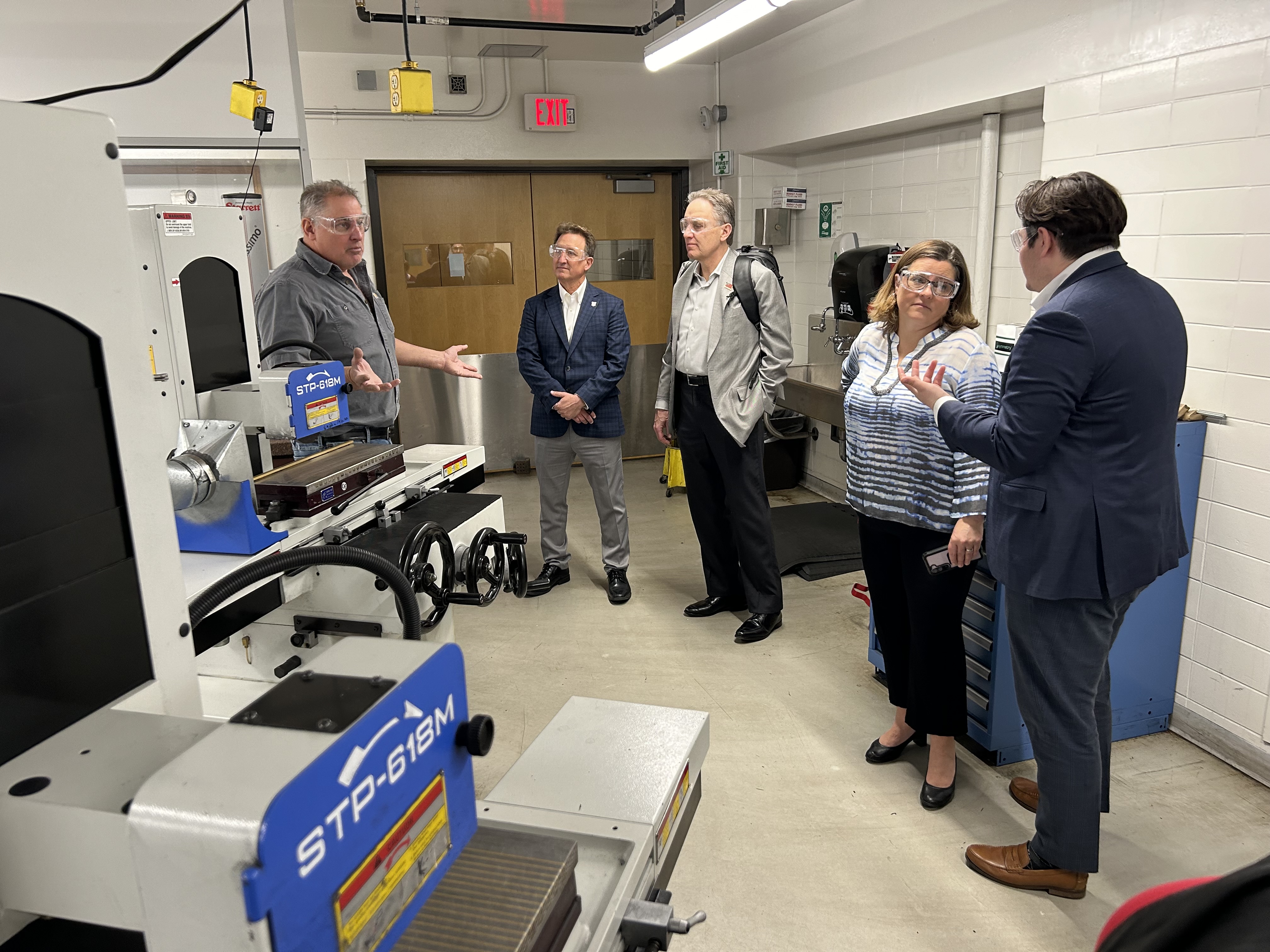
The American Manufacturing Communities Collaborative (AMCC) scours the country seeking out innovative ways to create and sustain good-paying manufacturing jobs.
The group recently found some innovation at Milwaukee Area Technical College.
AMCC representatives on Tuesday, March 12, visited MATC and saw first hand how the college is training neurodiverse students to become critically-needed CNC operators.
Matt Bogoshian, executive director of the AMCC; David Van Siclen, project operations manager for the AMCC; Buckley Brinkman, executive director of the Wisconsin Center for Manufacturing & Productivity; and Matt Fieldman, executive director of America Works, a manufacturing advocacy group, toured MATC’s machine shop at the Downtown Milwaukee Campus and were updated on the program, called the Uniquely Abled Academy (UAA).
AMCC officials visited MATC as part of a three-day tour of Madison, Milwaukee, and Green Bay. The group uses these trips to understand what's happening in manufacturing in different regions around the country, Fieldman said.
Earlier in March, AMCC members heard a presentation from Ivan Rosenberg, the founder and president of the Uniquely Abled Project, about the organization’s goal to create vocational opportunities for individuals with autism diagnoses by matching their unique abilities to jobs in demand in advanced manufacturing.
In 2021, MATC’s academy was the fifth implemented in the nation and the first outside of California. Today, there are 21 uniquely abled academies in 12 states. “The growth has just exploded and we wanted to see the program in action,” Fieldman said.
At MATC’s academy, students who are on the autism spectrum get more than 500 hours of technical instruction over two semesters, and also take career readiness and social skill classes. They learn how to build resumes and go on interviews. They visit prospective employers and watch employer presentations, said Goldhmong Vang, coordinator of the college’s UAA program.
Upon completion, students earn a CNC Setup and Operations certificate, which can land them a CNC position that earns more than $20 per hour.
MATC’s UAA students learn the same CNC skills as non-UAA students, MATC instructor Terry Wezyk told the visitors.
“You find out not everyone learns exactly the same way, so you need to be adaptive,” Wezyk said. “Each student might have a different style of learning. You might need to repeat something several times, or come up with step-by-step instructions. And you will have to take your time. Some students can be apprehensive about learning something new.”
MATC instructor Chris Comicki, who guided the machine shop tour, showed the AMCC representatives several types of metal components that UAA students work on during their courses.
There are 10 students in the current UAA cohort, which will graduate in May, Vang said. Another 10 are expected to start in the fall of 2024, she added. So far, about 70 percent of the students in the academy have found work or have returned to MATC to further their education.
“Some of the students have returned to be tutors to other students,” Comicki said.
“This has been very rewarding for me,” Wezyk said. “To see some students who didn’t know much about this create finished products is great.”
Read about some of MATC’s Uniquely Abled Academy students:
Read more about MATC’s Uniquely Abled Academy
About MATC: Wisconsin’s largest technical college and one of the most diverse two-year institutions in the Midwest, Milwaukee Area Technical College is a key driver of southeastern Wisconsin’s economy and has provided innovative education in the region since 1912. More than 30,000 students per year attend the college’s four campuses and community-based sites or learn online. MATC offers affordable and accessible education and training opportunities that empower and transform lives in the community. The college offers more than 180 academic programs — many that prepare students for jobs immediately upon completion and others that provide transfer options leading to bachelor’s degrees with more than 40 four-year colleges and universities. Overwhelmingly, MATC graduates build careers and businesses in southeastern Wisconsin. The college is accredited by the Higher Learning Commission.